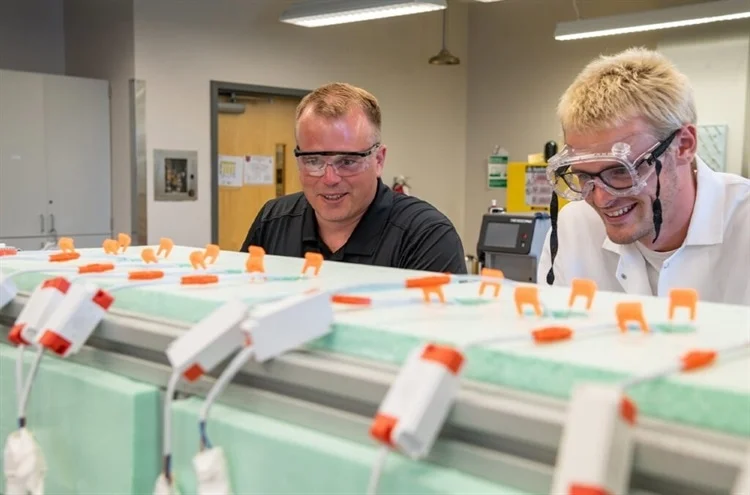Scientists at Washington State University have pioneered an innovative process to transform agricultural waste into sustainable jet fuel.
This breakthrough could significantly reduce carbon emissions and provide a more eco-friendly option for the aviation industry.

According to lead scientist Bin Yang, this achievement brings the technology closer to real-world application by providing essential data for evaluating its commercial feasibility.
The new method focuses on using lignin, a structural component found in plant cell walls and agricultural byproducts like corn stover—which includes stalks, cobs, and leaves left after harvesting.
In 2019, aviation fuel consumption reached a staggering 100 billion gallons globally, with expectations of continued growth.
Sustainable aviation fuels (SAF) derived from plant-based biomass offer a promising solution to meet international carbon neutrality goals, mitigate contrail formation, and lower the aviation industry’s carbon footprint.
The innovative process, termed ‘simultaneous depolymerization and hydrodeoxygenation,’ involves breaking down lignin polymers while simultaneously removing oxygen.
This results in a lignin-based jet fuel with the potential to replace fossil fuel-derived aromatics, which are still used in aviation fuels to increase density and maintain O-ring seals in metal joints.
Unlike aromatics, which contribute to contrail formation and climate change, lignin offers a cleaner, sustainable alternative.
The team’s study represents the first successful trial of a continuous production process, a critical step toward commercial scalability.
Instead of the typically used extracted lignin bio-oil, the researchers utilized a more cost-effective form known as ‘technical lignin,’ sourced from corn stover.
Josh Heyne, co-director of the WSU-PNNL Bioproducts Institute, highlighted that lignin-based jet fuel complements existing technologies by enhancing fuel blend properties, such as increasing density.
This makes it a valuable component in achieving 100% renewable aviation fuel, fully compatible with current engines, infrastructure, and aircraft.
The study’s funding came from the US Department of Energy’s Bioenergy Technologies Office, the National Renewable Energy Laboratory, the Pacific Northwest National Laboratory, and Advanced Refining Technologies LLC.
Moving forward, the team aims to optimize the process further to improve efficiency and lower costs, making lignin-based jet fuel an integral part of the future of sustainable aviation.
